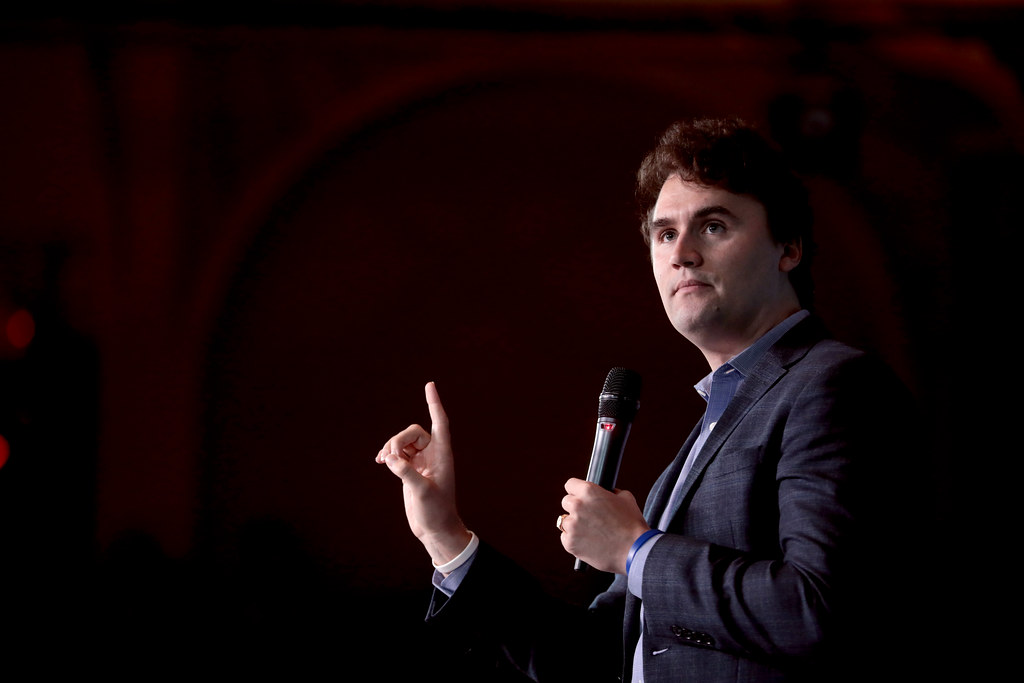Key Takeaways
• President Trump mourned Charlie Kirk’s “heinous assassination” on a Utah campus.
• He called Charlie Kirk a “martyr for truth and freedom” and blamed progressive talk.
• Trump urged Americans to end hateful rhetoric to stop more violence.
• He vowed to find the shooter and any groups behind political attacks.
• Trump asked citizens to honor Charlie Kirk’s values of free speech and faith.
Trump Honors Charlie Kirk as a Martyr for Freedom
President Trump spoke with grief after the shocking death of Charlie Kirk. He posted a video from the White House on his social platform. In it, Trump called Charlie Kirk a “patriot” who inspired millions of young people. He said Kirk’s work pushed for open debate, justice, and democracy. Trump described him as a “martyr for truth and freedom.” He noted that no one was so respected by youth.
Trump shared prayers for Charlie Kirk’s wife, Erica, and their two children. He asked God to comfort them in their pain. Then he declared the shooting a “dark moment for America.” As someone who faced two plots on his life, Trump felt this tragedy deeply.
How Charlie Kirk’s Death Sparks Debate on Rhetoric
Trump blamed “progressive rhetoric” for fueling violence like this attack. He argued that calling good people Nazis or criminals leads to deadly outcomes. Therefore, he demanded that the media and all Americans stop hateful talk. He warned that words have power. When you demonize opponents for years, violence can follow.
Moreover, Trump vowed to hunt down everyone involved in this crime. He promised to target any group that supports political violence. He especially warned against threats to judges and law enforcement. Trump said these people “bring order to our country.”
Call to Action for American Values
In his message, Trump urged citizens to embrace values that mattered to Charlie Kirk. He listed free speech, citizenship, the rule of law, and love of God. He said an assassin could not silence Kirk’s voice. On the contrary, his ideas will grow stronger. Kirk’s message will live on through generations, Trump promised.
Violent Rhetoric in Political Speech
Political scientists tracked violent words in speeches by Trump and others. They found Trump’s use of violent language rose from 0.6 percent in 2016 to 1.6 percent in 2024. By contrast, Barack Obama’s weekly radio talks stayed under one percent. This data shows that Trump himself often used harsh language. Such facts add complexity to his call for calmer talk now.
What We Know About the Investigation
Authorities have not yet caught the suspect in Charlie Kirk’s shooting. They also have not announced a motive. Trump vowed his administration will find everyone linked to the attack. He promised justice for Kirk and for any victims of political violence.
In fact, Trump’s team plans to look for supporters and organizations behind the crime. They will use all tools available to bring them to court. This case may set a new tone for punishing hate-driven crimes.
Young People’s Reaction to Charlie Kirk’s Death
Charlie Kirk built his influence by speaking directly to teens and college students. He led youth events that pushed conservative ideas. Now, many young followers feel stunned and fearful. They worry that political violence could strike anyone. Some say they will honor Kirk by joining debates peacefully. Others plan to demand stricter campus security.
Meanwhile, critics of Kirk argue that his style provoked strong reactions. They say his fiery speeches stirred anger in opponents. Thus, they call on all public figures to tone down their words.
Balancing Free Speech and Safety
This tragedy forces a tough question: How do we protect open debate and prevent violence? Free speech matters, but so does public safety. Many experts suggest clear rules for campus events and social media. They push louder penalties for hate speech that leads to threats.
Parents and students agree on one point: schools must be safe. They want better mental health support and threat monitoring on campus. At the same time, they do not want to silence honest debate.
The Role of Social Media Platforms
Social media platforms face pressure to police violent or hateful posts. Trump used his own platform to share the tribute to Charlie Kirk. Yet many sites banned his account after January 6. Now, they must decide how to handle posts that might inspire attacks.
Some platforms plan to label or remove posts that praise violence. Others will add warning screens before users share harsh language. In any case, they must act fast to prevent real-world harm.
Looking Ahead: The Legacy of Charlie Kirk
Despite this dark moment, many agree that Charlie Kirk’s influence will endure. His speeches, books, and videos will keep reaching young audiences. Students say they will honor his memory by staying active in politics.
On the other side, this killing might push more people to demand civility. They hope leaders on both sides show respect, even in disagreement. In turn, colleges may host joint forums on free speech and safety.
Ultimately, Charlie Kirk’s death could change how Americans talk to each other. If his legacy teaches us anything, it might be that words matter and lives matter even more.
Frequently Asked Questions
How did President Trump respond to Charlie Kirk’s death?
He posted a video calling Charlie Kirk a “martyr for truth and freedom.” He blamed progressive rhetoric and urged an end to hateful talk. He also promised to find the shooter and any backers.
What values did Trump highlight from Charlie Kirk’s life?
Trump named free speech, citizenship, the rule of law, and love of God. He asked Americans to commit to these ideals in Kirk’s honor.
Has the suspect in Charlie Kirk’s assassination been caught?
No. Authorities have not identified or apprehended the shooter. No motive has been released yet.
Will Charlie Kirk’s influence continue after his death?
Many believe so. His works will keep reaching young audiences. His death may also spark more calls for respectful debate and stronger campus safety.
